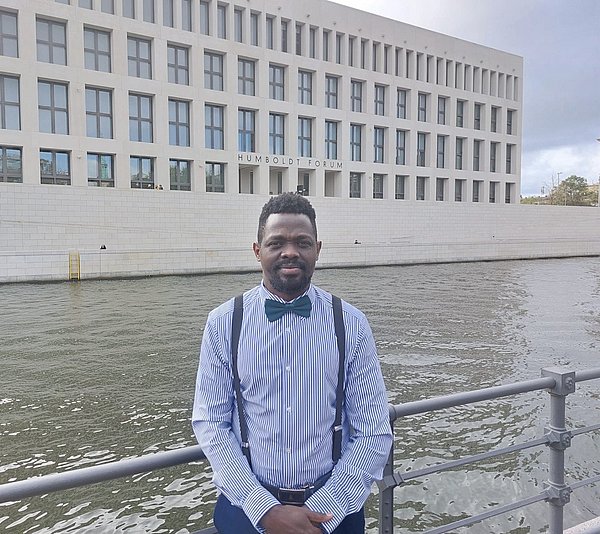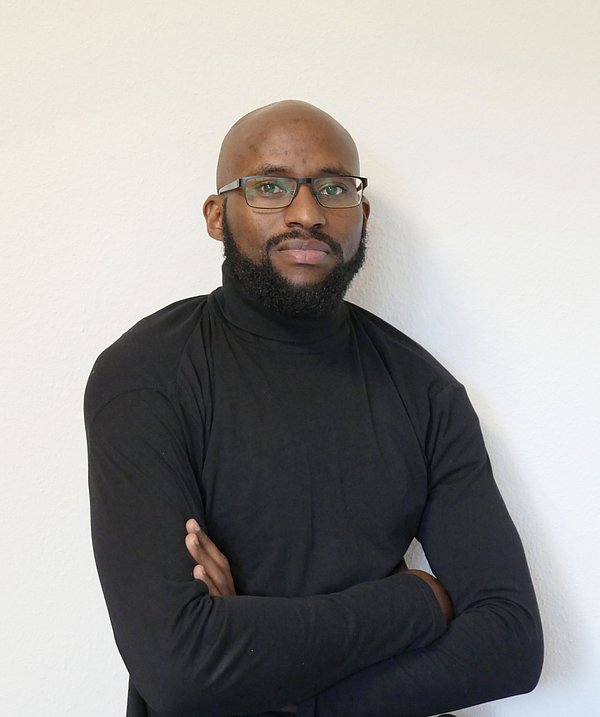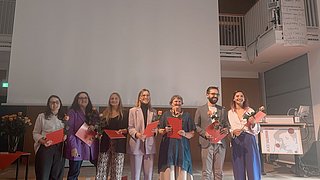Course description
Preparing for the challenges of tomorrow
The Master of Arts in Intercultural Conflict Management (MA-ICM) was created as a program of studies strongly oriented toward practical applications. It is a non-consecutive, Master's level program, designed according to recognised higher-education criteria. The program complies with the requirements of the Bologna Declaration and subsequent communiqués.
According to the Berlin Communiqué 3 and paragraph 35 of the Berlin Law on Higher Education (BerlHG), MA-ICM graduates may apply for PhD programs. The MA-ICM training is well suited to the requirements of the job market.

The Master's program represents a transdisciplinary and practice-oriented curriculum which commingles a multi-dimensional theoretical and methodological approach to social conflict with a strong focus on participatory practical social action. Thus, the program capacitates students for managing real-world social conflicts in transnational and intercultural contexts, so that students can carry out their own specific focus in a broader field of work opportunities, including NGOs, governments and international organizations.
Since its inception in 2000, the program located at the Alice Salomon Hochschule Berlin has carried through profound changes in its initial structure. These changes represent the result of two interrelated causes: In the first place, they were associated with the observations and proposals made by its students in several and regular program evaluations over years. In the second place, they reciprocated the manifold changes experienced by the world in social, political, cultural and economic terms during the last two decades.
Consequently, the program moved from a semi face-to-face structure to a completely face-to-face structure in 2010 and its original quantitative and qualitative methodological approach was thoroughly restructured in parallel, so that a more participatory and action-related approach could be accomplished. A concurrent Spanish-speaking program was established in 2014, but unfortunately had to be terminated in 2020.
The length of the English-speaking program has been drawn out from three to four semesters. This change is associated with the program’s constant search for a close interrelation among theory, methodology and practice. To this day, the length of the program has been drawn out from three to four semesters so that students can establish a much more profound relation with the social world surrounding them without time constraints.
The contents of the modules have been thoroughly restructured into three transversal modules stretching out over three semesters, which mix “classroom learning” with social action training in the context of real-world conflicts from the beginning of the first semester until the end of the third semester. This modification represents the result of manifold discussions and multiple contributions from both the academic staff and the students of the Intercultural Conflict Management program, with the shared aim to bring about an approach to social conflict in which theory, methodology and action coalesce.

Learning with international Classmates
The Master's program is based on 22 years of education and teaching experience. Since 2000, approximately 450 students from 50 different countries have successfully completed this curriculum. The cultural, professional, political, social, and linguistic diversity of the participants is one of the essential characteristics of the program toward a transnational, intercultural and transdisciplinary approach of study.
This diverse student body is brought together in Berlin, which materializes as a space of social analysis, collaborative learning and discursive construction. Consequently, the MA-ICM utilizes and integrates the issues of diversity and difference, from the perspective of a living laboratory for students and teachers.

Until today around 300 students from 62 countries studied in the cohorts ICM-02 to ICM-24.
Our students come from Afghanistan, Argentina, Australia, Austria, Azerbaijan, Bangladesh, Brazil, Cameroon, Canada, Chile, Colombia, Croatia, Czechia, Ecuador, Egypt, Ethiopia, France, Gambia, Germany, Ghana, Great Britain, Greece, Honduras, Hong Kong, India, Iran, Ireland, Israel, Italy, Jordan, Latvia, Lebanon, Luxemburg, Mexico, Myanmar, Namibia, Nepal, Netherlands, Nigeria, Norway, Pakistan, Palestinian Territories, Philippines, Poland, Romania, Saudi Arabia, Serbia, Singapore, Somalia, South Africa, South Korea, South Sudan, Spain, Sudan, Sweden, Switzerland, Syria, Turkey, Uganda, USA, Venezuela, and Zimbabwe.
The orientation of the MA-ICM is suited to the requirements of the job market. Former graduates work free-lance, in international governmental, non-governmental and private sector organizations in professional roles such as field officers, program managers, facilitators, trainers, advocates or researchers.
News
To keep you updated, we invite you to follow our Instagram page for upcoming events and more!
You can find a short film about the ASH building on Youtube.
Resolution of the Vice-Rector for Sustainability, Cooperation, and Healthy Living of the University of Valencia on the Awarding of the XV Edition of the Manuel Castillo Awards 2024
Our ICM lecturer Dr. Alfredo Langa Herrero has won the Manuel Castillo Award 2024 in its XV Edition in the category Published University Research Monograph for the article "The Action Without Harm and Development Projects: A Practical Triple Nexus Alternative", that he has written in cooperation with Francisco Rey Marcos.
More information can be found here.
Accreditation
We are pleased to announce that Alice Salomon University of Applied Sciences Berlin has successfully completed the evaluation process for the Master’s program "Intercultural Conflict Management Social Action in Global Contexts," leading to the degree of "Master of Arts." This marks the first significant step in our reaccreditation process. The accreditation was carried out by AHPGS (Accreditation Agency in the Field of Health and Social Affairs), and the official accreditation report was issued on September 16, 2024, by Georg Reschauer, Managing Director of AHPGS Accreditation gGmbH.
Invitation to the lecture series "Civil Society Engagement In Israel/Palestine: Voices Against Hopelessness"
The lecture series "Civil Society Engagement In Israel/Palestine: Voices Against Hopelessness" focuses on Palestinians and Israelis who are actively committed to deescalating the violence in the region. It offers a platform for voices that remain in the shadows of the conflict and addresses solidarity, memory work and dialogue in times of violence and hopelessness.
Download the Flyer below:
-

Vorlesungsreihe_Zivilgesellschaftliches_Engagement_in_Israel_Palaestina.pdf
05.11.2024 · 94 KB
Alumni section

Before moving to Germany, I was looking for a study program oriented on the practical aspects of development work, and I found the ICM program very fulfilling to my needs and to my aspiration of working in an international context. The program's modules, seminars and lectures provide students with very important knowledge and skills that can be used in various contexts of intercultural work.
I really enjoyed the hands-on approach of the lecturers and the various topics we touched upon. Through the seminars I could focus more on the Latin American context and now I am happy to apply the skills gained from the ICM program in my new position in Mexico City for an international project promoting skilled migration and multidimensional collaboration between Mexico and Germany.
Good luck with your new adventure in Hellersdorf!
Contact: k-jasini[at]outlook.com

Since the current head of the North Africa and Middle East department of the Heinrich Bell Stiftung gave me the tip in 2009 that I could train as a peace expert after I came back from Burkina Faso with debts from the last theater project, with my then two small children with me, I have stuck with it. I finally wanted to be able to work sustainably in a larger context. In 2010, I continued my training at the Forum Civil Peace Service Cologne (ZFD) and got certified as a peace specialist and in 2011/12 I qualified as an adult educator with Gewaltfrei Handeln e.V. (Nonviolent Action). I was invited to job interviews from time to time, but didn't get the jobs. Someone was better qualified. When I found out about the ICM Master's program in 2015, I knew I was going to turn things around. At first it didn't work out, but I was given the tip to apply for the Spanish program. So in 2020, shortly before Covid, I started working on my Spanish at B2 level and got my place in 2020 in November!!!! It was postponed and canceled in January and I was offered a place to study in English, which I gratefully accepted.
I combined my two passions, peace and clowning, in my master's degree and wrote and made a movie about it. Now, less than a year later, I can start my first job as a peace worker in Burkina Faso for EIRENE and their partner organization WANEP. My first paper in my studies was about the careers and the image of women in Burkina Faso, based on Claudia Roth's doctoral thesis “And they are proud”. As part of the paper, I also conducted my first academic interview.

I had a truly wonderful experience in the ICM program, and choosing to study it felt like a blessing. On October 19, 2021, I visited ASH for the first time, after traveling from Africa to Europe, which was my first time leaving the continent. Although visa delays made me start classes late, the coordinators, professors, and classmates were extremely supportive. They helped me settle into life in Germany, and I quickly felt at home.
The ICM program’s practical, hands-on approach, with less focus on theory, deeply expanded my understanding of global social action. I had the chance to interact with people from diverse cultural, social, professional, and religious backgrounds, which taught me invaluable lessons about tolerance and respecting different viewpoints. We covered a range of topics, including international conflict, peacebuilding processes, global politics, and social action, all of which provided a broader perspective on these critical global issues.
The "Do No Harm" principle was a particularly important concept we explored. It has had a lasting impact on me, and I now apply it in my current work to help bridge organizational gaps. I am incredibly grateful to the ICM professors for this transformative experience, which not only enhanced my professional skills but also helped me grow personally. I highly recommend everyone to enjoy ICM and ASH.
Contact: keyema.bereket[at]gmail.com

Studying in the Intercultural Conflict Management (ICM) program at Alice Salomon Hochschule gave me valuable tools for my work in recruiting enablement. The ICM program’s focus on cross-cultural communication and conflict resolution has been directly relevant, helping me design training and processes that resonate with our diverse team and candidate base. It also taught me how to bridge gaps and facilitate smoother collaboration, which is essential in enablement where supporting alignment and creating an inclusive candidate experience are key. This background has helped me approach recruiting enablement with both empathy and a strategic mindset.

My name is Melissa, and I hail from a small town in Germany. I completed my Bachelor’s degree in Area Studies at Humboldt University in Berlin, with a regional focus on South Asia. Following that, I pursued the Intercultural Conflict Management (ICM) program, from which I graduated in 2023. My master’s thesis focused on peace processes and the prevalence of political violence, employing a case study from South India to delve into the complexities of protracted conflicts. I chose the ICM program because it offered a unique combination of interdisciplinary, practical, and international perspectives, which I believed were essential for understanding and addressing contemporary conflicts. The ICM program aligned perfectly with my academic and professional aspirations. I thoroughly enjoyed my studies and gained invaluable insights throughout the course. The international and intercultural nature of the program fostered a vibrant learning environment where I collaborated with peers from diverse cultural and professional backgrounds. This exposure significantly broadened my perspectives and enriched my understanding of different conflict contexts. Additionally, the program's practical focus was particularly beneficial; for instance, in the final two semesters, we undertook an individual group project, which involved designing and implementing actions to real-world issues. I am currently a freelance mediator and workshop facilitator, where I apply my knowledge and skills to help individuals and groups navigate conflicts constructively. Looking ahead, I am eager to pursue a PhD, which I believe will further deepen my expertise and enable me to contribute more significantly to the field of conflict management and peace studies.

With over three years in the refugee solidarity movement along the Balkan Route, I’ve gained hands-on experience supporting migrating communities across Croatia and Bosnia and Herzegovina. Working with organizations like Are You Syrious, Blindspots, and the Border Violence Monitoring Network, I often served as a liaison between local and international actors, translating and mediating on the ground. This firsthand insight into the impacts of the EU border regime inspired my deep interest in critical border studies and human rights advocacy. Having just completed my Master’s in Intercultural Conflict Management, I’m now focused on research in border surveillance technologies and looking for roles in migration research, human rights, or investigative journalism. Let’s grab a coffee if you have leads or just want to chat!
Contact: isabellaranieri87[at]gmail.com

Hello!
I’m Georgewilliam Ndibarema from Uganda, an ICM graduate 2024 with a strong passion for promoting peace and fostering intercultural understanding. I have a background in philosophy and religious studies, I also obtained further training in participatory and adult learning methodologies and have served as a facilitator dedicated to the promotion of non-violence in the rural communities of Uganda. My scholarly journey at Alice Salomon Hochschule Berlin has equipped me with the skills necessary to navigate and manage complex social conflicts within diverse, transnational frameworks. At present, I am exploring potential avenues within the humanitarian sector, with the objective of assisting marginalized populations in Germany through impactful research. My master's thesis evaluated integration strategies for third-country nationals, concentrating on EIRENE’s Strong Neighbours initiative in Neuwied, Germany, which raised my interest for project evaluation and development. I am eager to advance this endeavor within the realm of academia by engaging in research that supports inclusive initiatives aimed at supporting positive societal transformation.
Contact: ngwi[at]hotmail.com

I am Tesfaye Petros Botachew, an Ethiopian student at Alice Salomon University (ASH) graduate of 2024 in the Intercultural Conflict Management (ICM) program. After completing my college studies, I dedicated myself working with people from diverse backgrounds and ethnic groups, many of whom were in constant conflict. Though this time in my life was deeply rewarding, addressing daily conflicts became part of my routine. I realized that conflict is unavoidable—whether we're with others or alone, it’s always present. The true question is not why conflict exists, but how we handle it. This is a critical lesson that we often overlook, both in our relationships with others and in our internal conflicts.
For 16 years, I worked in a conflict-prone area, doing my best to help the community, though I often felt that my efforts were insufficient. Eventually, I made the difficult decision to return to school to expand my understanding of intercultural conflict management. Leaving my community was challenging, but I knew it was essential for my growth, both personally and professionally.
In 2022, I enrolled in the ICM Master’s program at Alice Salomon University, my top choice for advanced study in this field. I was fortunate to join a diverse cohort of students from 15 different countries, each contributing unique perspectives on social, economic, cultural, and political issues. The program offered more than just theoretical knowledge—it provided practical insights from professors with real-world experience in conflict resolution, enabling me to gain valuable skills and strategies.
Currently, I am working as the Director of Multicultural Ministry, where I have the opportunity to engage with people from various cultural backgrounds. This role allows me to apply what I’ve learned in the ICM program on a daily basis. Working in multicultural ministry has proven to be an excellent opportunity to bridge differences and encourage mutual understanding and peace, especially in culturally diverse settings.
Being an ICM student has truly opened my eyes to global conflicts, especially those involving ethnic tensions. The program has equipped me with the tools to navigate and address conflicts in practical, effective ways. I wholeheartedly encourage others to explore this field of study because conflict is a universal experience—we are not isolated from it. If you are passionate about helping others and addressing conflicts, ICM is an invaluable choice.

Hello!
My name is Tanager, I'm a former ICM student and current coordinator and translator. Today, I work as the Coordinator of the Squamish Welcome Centre, a non-profit organization in Squamish, British Columbia, Canada. I joined the organization in 2021 when it was hanging on by a thread, struggling through the loss of a major contract (and therefore funding) and the impacts of the COVID-19 pandemic. Working first as the Grants and Programs Liaison and now leading the non-profit society as well as its programs, I've put what I learned in the ICM program to good use.
Today at the Squamish Welcome Centre, you'll find a volunteer-run community bookstore, digital literacy programing, language learning resources, a partner organization (Squamish Newcomer Services), the Migrant Worker Support Program, and more! I'm particularly honored to have launched the Squamish Welcome Centre's Migrant Worker Support Program. For people living or working in Squamish with closed (employer-specific) work permits, this program offers one-on-one appointments, informational workshops, recreational activities, and more, with a major focus on identifying and responding to physical, financial, or psychological abuse in the workplace. This program, like all of our activities at the Welcome Centre, seeks to foster social inclusion as a method of fighting social exclusion, a root cause of inequality in Squamish. Leading the Squamish Welcome Centre and its programs has been equal parts challenging and fulfilling.
I also work as a translator (German to English) and line editor; an example of my translation and editing work of which I am particularly proud is the 2023 collaboration between Friedrich-Ebert-Stiftung and the German Trade Union Confederation, Trade Unions and Right-Wing Populism in Europe. As a graduate of the Intercultural Conflict Management MA program at ASH (2016), I am grateful to have furthered my academic studies while also learning practical skills. I apply both in my life and work today.
Feel free to reach out if you would like to chat! tanagert [at] gmail [.com]


























